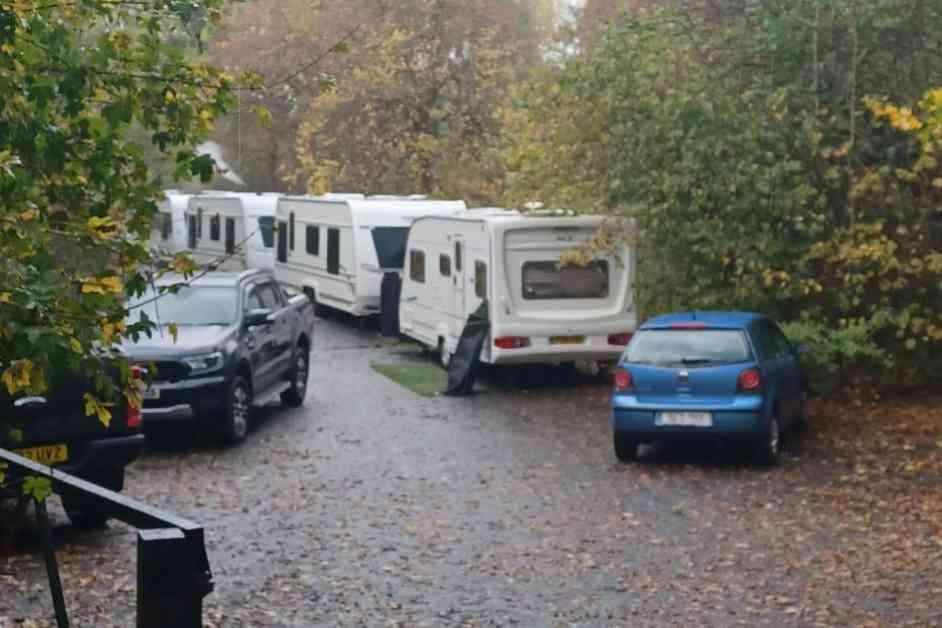Town Hall leaders have given the green light to the purchase of a site in Warrington for the future transit site for travellers, despite facing opposition.
The chosen location for the transit site is the former Kenyon Lane Nurseries site, situated at the northern boundary of the borough between Lowton and Culcheth. This decision has sparked controversy among local officials and residents.
Cllr Neil Johnson, a Labour borough and parish councillor representing Culcheth, Glazebury, and Croft, expressed his shock and dismay upon learning about the plans to establish a transit site on the land in Culcheth. He went as far as resigning from the Labour party to stand as an independent in protest against what he called ‘shady skulduggery’.
In response to Cllr Johnson’s actions, Liberal Democrat councillor Judith Wheeler voiced concerns that his opposition could potentially set back the project by a decade and undo the progress made in finding a suitable location.
The decision to move forward with the acquisition of the Kenyon Lane site was made during a council cabinet meeting at the Town Hall. Cllr Denis Matthews, the council’s cabinet member for finance, assets, and investments, emphasized the importance of fulfilling the legal obligations under the Housing Act 2004 to provide accommodation for the travelling community.
He clarified that travellers staying at the site would be subject to a daily rental fee and limited to a maximum occupancy period of 28 days. Cllr Matthews stressed that the project would undergo thorough planning and consultation processes to address any concerns raised by the public.
The council has long expressed the need for a transit site to accommodate gypsy and traveller communities in Warrington and mitigate the impact of unauthorized encampments in the town. With a budget allocation of £2 million set aside for the project, the acquisition of the Kenyon Lane site was deemed a strategic move to address these issues.
The cabinet’s approval of the acquisition, along with the delegation of final acquisition terms to relevant authorities, signifies a significant step towards realizing the transit site project. The decision was based on the potential benefits of establishing a dedicated site for gypsy and traveller communities, reducing unauthorized encampments, and exploring alternative uses for the property if needed.
Overall, the approval of the future transit site acquisition in Warrington marks a crucial development in addressing the accommodation needs of the travelling community while navigating the challenges of unauthorized encampments in the area. Despite facing opposition and concerns from some officials, the council remains committed to fulfilling its legal obligations and serving the best interests of the community.





















